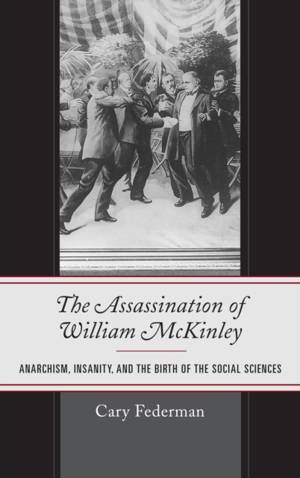
- Afhalen na 1 uur in een winkel met voorraad
- Gratis thuislevering in België vanaf € 30
- Ruim aanbod met 7 miljoen producten
- Afhalen na 1 uur in een winkel met voorraad
- Gratis thuislevering in België vanaf € 30
- Ruim aanbod met 7 miljoen producten
Zoeken
The Assassination of William McKinley
Anarchism, Insanity, and the Birth of the Social Sciences
Cary Federman
Hardcover | Engels
€ 254,45
+ 508 punten
Omschrijving
This book is an examination of the assassination of President William McKinley by Leon Czolgosz, an American-born purported anarchist. This work offers a new and different way to approach historical crime stories. Rather than accepting the idea that Czolgosz was inherently dangerous because of his ethnic background or his obscure political statements, Federman argues, rather, that political relations, historical events, and the developing discourses in the natural and social sciences toward normal and pathological behaviors structured the meaning of the assassination. Federman proposes there are six ways to view an assassin, each corresponding to a social science. Consequently, each chapter of this manuscript examines a social science and its relation to the assassination. Overall, there are three purposes to this work: One is to examine the rise of the social sciences at the time of the assassination. The second is to explore the historical and political understanding of political violence; and the third is to examine the meaning of legal responsibility.
Specificaties
Betrokkenen
- Auteur(s):
- Uitgeverij:
Inhoud
- Aantal bladzijden:
- 312
- Taal:
- Engels
Eigenschappen
- Productcode (EAN):
- 9781498565509
- Verschijningsdatum:
- 6/12/2017
- Uitvoering:
- Hardcover
- Formaat:
- Genaaid
- Afmetingen:
- 155 mm x 229 mm
- Gewicht:
- 748 g

Alleen bij Standaard Boekhandel
+ 508 punten op je klantenkaart van Standaard Boekhandel
Beoordelingen
We publiceren alleen reviews die voldoen aan de voorwaarden voor reviews. Bekijk onze voorwaarden voor reviews.







